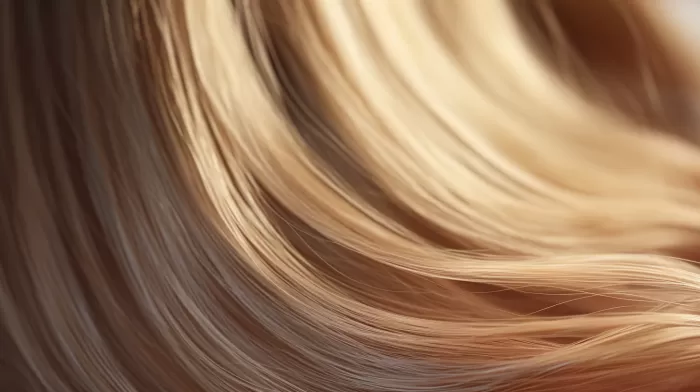Hair loss can be a distressing experience for many people, causing them to feel self-conscious and even anxious. It’s commonly believed that hair loss is primarily caused by aging, but this is only part of the story. Hair loss, also known as alopecia, can be influenced by genetics, nutrition, hormones, circulation to the scalp, and other factors. The good news is that understanding these factors can help you find ways to halt or even reverse hair loss, while also improving your overall health and vitality.
Nutrition for healthier hair
One of the key factors in hair loss is nutrition. A vitamin or mineral deficiency can lead to hair loss, as your body struggles to function effectively without proper nourishment. To ensure optimal hair health, focus on a nutrient-dense diet that includes lean proteins, lots of vegetables, some fruits, healthy fats, and sprouted whole grains.
It’s important to consume enough high-quality protein, as hair is made up of protein. Examples of protein-rich foods include wild salmon, sprouted legumes and grains, free-range meats and eggs, and other similar sources. Additionally, omega-3 fatty acids (found in foods like salmon, sardines, walnuts, flax, and chia seeds) are great for maintaining scalp and hair health.
To avoid hair loss caused by an iron deficiency, consume green leafy vegetables in abundance. While beef is also a good source of iron, it can contribute to the production of sebum, which has been linked to hair loss, so it’s best consumed in moderation. Zinc is another essential mineral that can improve hair health, and it can be found in foods like cashews, spinach, beans, mushrooms, oysters, and flax seeds.
The role of prescriptions and stress in hair loss
Some medications can cause hair loss, so it’s essential to consult your physician if you suspect this might be the case. Blood thinners, birth control pills, and antidepressants have all been associated with alopecia, although hair usually grows back once the medication is stopped.
Chronic stress can also contribute to hair loss, as it leads to inflammation and immune/hormone imbalances that harm hair growth. To counteract this, consider incorporating stress reduction techniques like meditation, yoga, or Tai Chi into your daily routine. These practices can reduce inflammation, lower stress hormones, and increase circulation, all of which promote hair health.
Hormonal imbalances and hair loss
An underactive thyroid can cause hormonal imbalances that lead to hair loss. The thyroid gland secretes hormones that govern cellular energy and influence how the body reacts to other hormones. Sea vegetables like kelp, nori, and dulse are rich in iodine, which can help regulate the thyroid and promote healthy hair growth. If you suspect your thyroid may be contributing to hair loss, consult your healthcare provider for testing.
Aging can also cause imbalances in androgenic hormones, with elevated dihydrotestosterone (DHT) levels stimulating “male pattern balding” in both men and women.
Herbs for hair regrowth
Several herbal supplements have shown promise in increasing hair growth and providing additional health benefits:
- Eclipta Alba, or False Daisy, is traditionally used to support liver and eye health, and studies have shown it can also encourage hair growth.
- Cuscuta reflexa has been employed as a muscle relaxant, antioxidant, and antiviral, and it’s been found to promote hair growth as well.
- Tectona grandis Linn seeds are used in Ayurvedic medicine to stimulate hair growth, and one study found they are at least as effective as the prescription drug minoxidil.
- Indian gooseberry, when applied topically, has been shown to regulate local hormone levels in hair follicles, promoting hair health.
Taking a holistic approach
Addressing hair loss is a holistic endeavor that encompasses nutrition, stress relief, and hormone balance. By focusing on these aspects, you can experience greater energy, vitality, and a sense of well-being. Additionally, the confidence boost that comes from having healthier looking hair can significantly improve your overall quality of life.



